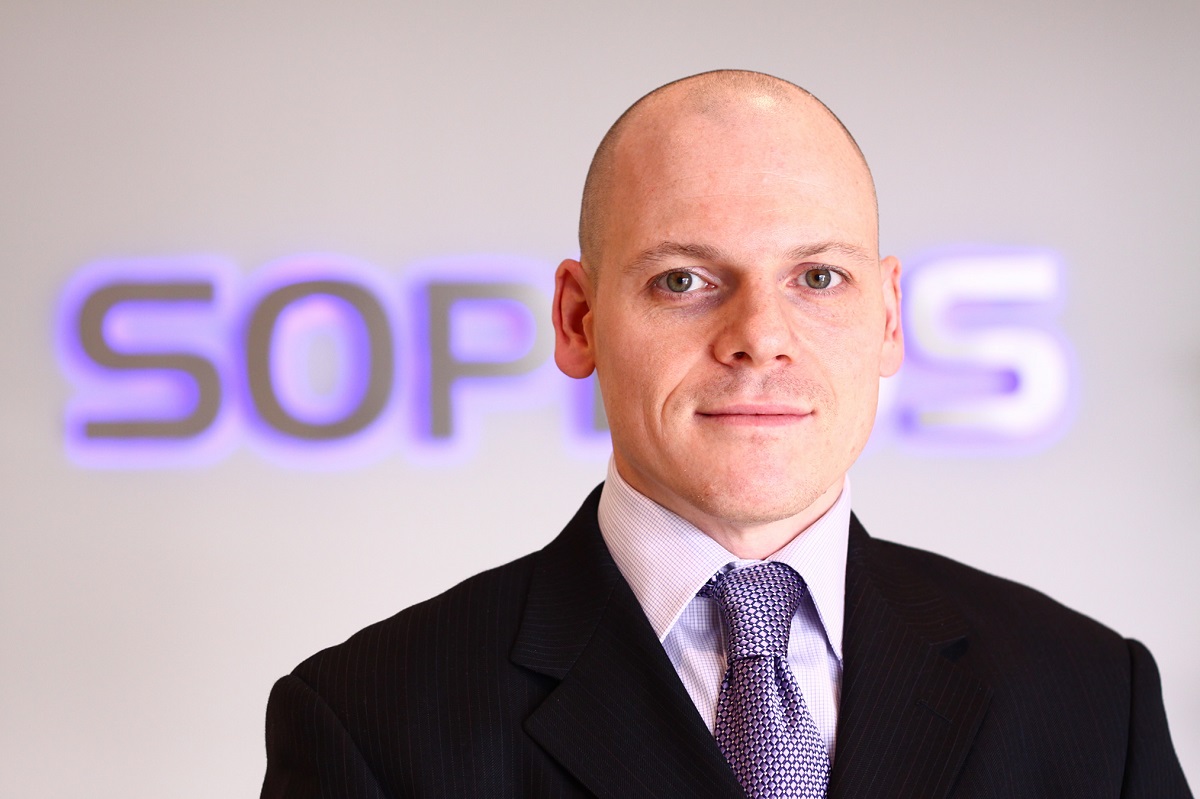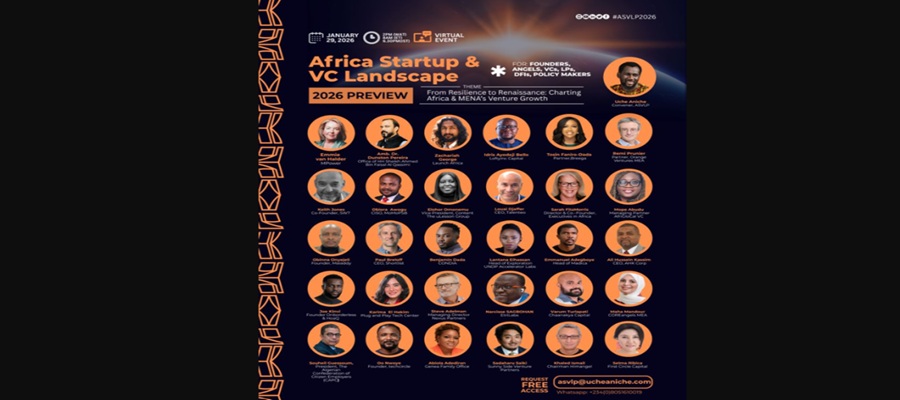Telecom
Sophos’ Active Adversary Playbook 2022 Reveals 36% Increase in Dwell Time Attackers

Sophos, a global leader in next-generation cybersecurity, has released the “Active Adversary Playbook 2022,” detailing attacker behaviors that Sophos’ Rapid Response team saw in the wild in 2021.

John Shier, senior security advisor at Sophos
The findings show a 36% increase in dwell time, with a median intruder dwell time of 15 days in 2021 versus 11 days in 2020.
The report also reveals the impact of ProxyShell vulnerabilities in Microsoft Exchange, which Sophos believes some Initial Access Brokers (IABs) leveraged to breach networks and then sell that access to other attackers.
“The world of cybercrime has become incredibly diverse and specialized. IABs have developed a cottage cybercrime industry by breaching a target, doing exploratory reconnaissance or installing a backdoor, and then selling the turn-key access to ransomware gangs for their own attacks,” said John Shier, senior security advisor at Sophos. “In this increasingly dynamic, specialty-based cyberthreat landscape, it can be hard for organizations to keep up with the ever-changing tools and approaches attackers use. It is vital that defenders understand what to look for at every stage of the attack chain, so they can detect and neutralize attacks as fast as possible.”
Sophos’ research also shows that intruder dwell time was longer in smaller organizations’ environments. Attackers lingered for approximately 51 days in organizations with up to 250 employees, while they typically spent 20 days in organizations with 3,000 to 5,000 employees.

“Attackers consider larger organizations to be more valuable, so they are more motivated to get in, get what they want and get out. Smaller organizations have less perceived ‘value,’ so attackers can afford to lurk around the network in the background for a longer period. It’s also possible these attackers were less experienced and needed more time to figure out what to do once they were inside the network. Lastly, smaller organizations typically have less visibility along the attack chain to detect and eject attackers, prolonging their presence,” said Shier. “With opportunities from unpatched ProxyLogon and ProxyShell vulnerabilities and the uprise of IABs, we’re seeing more evidence of multiple attackers in a single target. If it’s crowded within a network, attackers will want to move fast to beat out their competition.”
Additional key findings in the playbook include:
- The median attacker dwell time before detection was longer for “stealth” intrusions that had not unfolded into a major attack such as ransomware, and for smaller organizations and industry sectors with fewer IT security resources. The median dwell time for organizations hit by ransomware was 11 days. For those that had been breached, but not yet affected by a major attack, such as ransomware (23% of all the incidents investigated), the median dwell time was 34 days. Organizations in the education sector or with fewer than 500 employees also had longer dwell times
- Longer dwell times and open entry points leave organizations vulnerable to multiple attackers. Forensic evidence uncovered instances where multiple adversaries, including IABs, ransomware gangs, cryptominers, and occasionally even multiple ransomware operators, were targeting the same organization simultaneously
- Despite a drop in using Remote Desktop Protocol (RDP) for external access, attackers increased their use of the tool for internal lateral movement. In 2020, attackers used RDP for external activity in 32% of the cases analyzed, but this decreased to 13% in 2021. While this shift is a welcome change and suggests organizations have improved their management of external attack surfaces, attackers are still abusing RDP for internal lateral movement. Sophos found that attackers used RDP for internal lateral movement in 82% of cases in 2021, up from 69% in 2020
- Common tool combinations used in attacks provide a powerful warning signal of intruder activity. For example, the incident investigations found that in 2021 PowerShell and malicious non-PowerShell scripts were seen together in 64% of cases; PowerShell and Cobalt Strike combined in 56% of cases; and PowerShell and PsExec were found in 51% of cases. The detection of such correlations can serve as an early warning of an impending attack or confirm the presence of an active attack
- Fifty percent of ransomware incidents involved confirmed data exfiltration – and with the available data, the mean gap between data theft and the deployment of ransomware was 4.28 days. Seventy-three percent of incidents Sophos responded to in 2021 involved ransomware. Of these ransomware incidents, 50% also involved data exfiltration. Data exfiltration is often the last stage of the attack before the release of the ransomware, and the incident investigations revealed the mean gap between them was 4.28 days and the median was 1.84 days
- Conti was the most prolific ransomware group seen in 2021, accounting for 18% of incidents overall.REvil ransomware accounted for one in 10 incidents, while other prevalent ransomware families included DarkSide, the RaaS behind the notorious attack on Colonial Pipeline in the U.S. and Black KingDom, one of the “new” ransomware families to appear in March 2021 in the wake of the ProxyLogon vulnerability. There were 41 different ransomware adversaries identified across the 144 incidents included in the Of these, around 28 were new groups first reported during 2021. Eighteen ransomware groups seen in incidents in 2020 had disappeared from the list in 2021
“The red flags that defenders should look out for include the detection of a legitimate tool, combination of tools, or activity in an unexpected place or at an uncommon time,” said Shier. “It is worth noting that there may also be times of little or no activity, but that doesn’t mean an organization hasn’t been breached. There are, for instance, likely to be many more ProxyLogon or ProxyShell breaches that are currently unknown, where web shells and backdoors have been implanted in targets for persistent access and are now sitting silently until that access is used or sold. Defenders need to be on the alert for any suspicious signals and investigate immediately. They need to patch critical bugs, especially those in widely used software, and, as a priority, harden the security of remote access services. Until exposed entry points are closed and everything that the attackers have done to establish and retain access is completely eradicated, just about anyone can walk in after them, and probably will.”

The Sophos Active Adversary Playbook 2022 is based on 144 incidents in 2021, targeting organizations of all sizes, in a wide range of industry sectors, and located in the U.S., Canada, the U.K., Germany, Italy, Spain, France, Switzerland, Belgium, Netherlands, Austria, the United Arab Emirates, Saudi Arabia, the Philippines, the Bahamas, Angola, and Japan. The most represented sectors are manufacturing (17%), followed by retail (14%), healthcare (13%), IT (9%), construction (8%), and education (6%).
The aim of Sophos’ report is help security teams understand what adversaries do during attacks and how to spot and defend against malicious activity on the network. To learn more about attacker behaviors, tools and techniques, read the Sophos Active Adversary Playbook 2022 on Sophos News.
Telecom
ASVLP 2026: Africa, MENA VCs Gear Up as Tech Funding Hits $4.1bn Rebound

As Africa and MENA’s startup ecosystems transition from post-correction resilience into a new phase of disciplined growth, the Africa Startup & VC Landscape Preview (ASVLP 2026) will convene leading founders, investors, policymakers, and ecosystem builders on January 29, 2026, for its second annual, agenda-setting virtual forum.

Following a challenging global venture cycle, 2025 marked a notable rebound across the African ecosystem, with startups raising an estimated $3.2–$3.3 billion over the full year.
The recovery was accompanied by significant structural shifts: Kenya emerged as the leading destination among Africa’s “Big Four” markets for the first time, while Nigeria recorded a year-on-year funding decline, reflecting changing investor preferences, macroeconomic pressures, and a broader recalibration toward capital efficiency and sustainability.
Sectorally, fintech remained the most funded vertical, while climate & energy, AI-enabled solutions, healthtech, and infrastructure-adjacent businesses gained increasing attention. Across Africa and MENA, development finance institutions (DFIs) and family offices played a more pronounced role in anchoring funds, deploying catalytic capital, and supporting blended-finance structures, reshaping how early-stage and growth capital is mobilized.
ASVLP 2026 is designed to translate these data points into forward-looking strategy.
The forum will bring together venture capitalists, angel investors, LPs, DFIs, family offices, founders, corporate leaders, and regulators from Africa, MENA, Europe, and North America to assess 2025 outcomes and chart priorities for 2026.
The program will feature keynotes, fireside chats, panels, and deep-dive roundtables, including discussions on:
· The 2026 Africa & MENA FinTech Landscape, focusing on security, profitability, regulation, and growth frontiers
· Emerging Fund Managers, capital formation, and LP alignment
· Talent, operator depth, and institutional capacity as constraints to scale
· Regulatory evolution and cross-border market integration
A major highlight of ASVLP 2026 will be the Final DealRoom Pitch Session, where a curated group of high-potential startups will present to an experienced panel of investors.
• Founders can apply to pitch via: bit.ly/ASVLP-DR-Founders
• Investors seeking DealRoom access can request entry via: bit.ly/ASVLP-DR-Investors
Confirmed speakers for ASVLP 2026 include Khaled Ismail (HIMangel), Idris Ayodeji Bello (LoftyInc Capital), Zachariah George (Launch Africa), Tosin Faniro-Dada (Breega), Selma Ribica (FirstCircle Capital), Maha Mandour (COREangels MEA), Joe Kinvi (Borderless), Remi Prunier (Orange Ventures MEA), Karima El Hakim (Plug and Play Tech Center), Souheil Guessoum (President, The Confederation of Citizen Employers – Algeria (CAPC)), Remi Prunier (Partner, Orange Ventures, MEA), Maha Mandour (COREAngels MEA), Ali Hussein (President, Kenyan FinTech Association), Patrick Okebu (CIO, Interswitch Group) among other leading voices shaping capital, policy, and innovation across the region.
“The conversation has shifted,” said Uche Aniche, Convener of ASVLP. “It’s no longer about whether capital will return to Africa and MENA, but what kind of capital, deployed with what discipline, and in service of which long-term outcomes. ASVLP exists to help the ecosystem make sense of that transition.”
Participation in ASVLP 2026 is free but strictly by invitation.
Interested participants are encouraged to repost the official announcement on LinkedIn and comment #ASVLP2026 to receive a private registration link. They could also email [email protected] and request invite.
Telecom
TikTok, Instagram Blamed in US Youth Suicide Lawsuit

Major social media giants Meta Platforms, TikTok and Alphabet’s YouTube will face a landmark jury trial this week in Los Angeles County Superior Court over allegations that their addictive designs have fuelled a youth mental health crisis, marking the first such case to reach this stage.

Social Media
The pivotal personal injury lawsuit centres on a 19-year-old Californian woman identified as K.G.M., who claims her childhood immersion in Instagram, Facebook, YouTube and TikTok—engineered with endless scrolls, autoplay videos, notifications and algorithms—sparked severe anxiety, depression and suicidal thoughts.
Dozens of similar suits have surged since 2022 from families, schools and states, accusing the firms of burying internal research on teen harms while prioritising ad revenue through youth-targeted engagement hooks, despite Section 230 protections for user content.
Plaintiffs seek damages and design overhauls, arguing platforms bypassed parents and preyed on vulnerable kids; defendants counter there’s no clinical “social media addiction” diagnosis, no proven causation—kids with issues often use less—and they’ve added safeguards like parental controls and time limits.
Echoing Australia’s under-16 bans, the trial will scrutinise thousands of internal documents, expert testimonies and K.G.M.’s story, potentially expanding tech liability amid debates where studies show complex links, not direct causation, between screen time and disorders like eating issues or self-harm.
A win could mandate warning labels, age gates or algorithm tweaks, reshaping global platforms as U.S. Surgeon General advisories and global scrutiny intensify pressure on Big Tech to prioritise child safety over profits.
Telecom
Meta Tests Paid Subscriptions Across Instagram, Facebook, WhatsApp

Meta is gearing up to trial paid subscription services on Instagram, Facebook, and WhatsApp, aiming to diversify revenue streams beyond advertising while maintaining free core access for all users.

Meta
The subscriptions will offer enhanced tools tailored for everyday users, creators, and businesses, including advanced content creation, sharing, and workflow features distinct from the existing Meta Verified verification program. Unlike a uniform rollout, Meta plans varied testing formats per app to match diverse audiences, experimenting with feature bundles based on user feedback to refine the model.
A key element involves integrating Manus, the autonomous agent firm Meta acquired for $2 billion in December, into these apps alongside its enterprise sales. Manus enables complex task automation with minimal input, with early signs like Instagram shortcuts already spotted by reverse engineer Alessandro Paluzzi.
Video tools feature prominently: Meta’s Vibes short-form video generator in the Meta AI app shifts to freemium, where paid tiers unlock higher monthly creation limits beyond the free baseline. On Instagram, subscriptions could enable unlimited audience lists, non-follower tracking, and anonymous Story views, though specifics for Facebook and WhatsApp remain under wraps.
Drawing from Meta Verified’s 2023 launch—which provides badges, support, and protection mainly for creators—these broader plans target wider appeal amid industry shifts. Ad growth slows against TikTok competition, while Snapchat+ boasts 16 million subscribers at $3.99 monthly, proving demand for value-driven paid perks despite subscription fatigue risks from streaming and storage fees.
Meta will phase tests gradually, prioritizing feedback to shape long-term viability without alienating free users.

 News2 days ago
News2 days agoLIRS to Invoke NTAA to Recover Unpaid Taxes from Bank Accounts, Others

 News2 days ago
News2 days agoAnambra Cuts Monday Pay to Kill Sit-at-Home

 E-Financial2 days ago
E-Financial2 days agoFirst Asset Management Receives Upgraded Ratings from Agusto &Co and DataPro

 E-Financial2 days ago
E-Financial2 days agoNIBSS, Others Flag 13,417 Nigerian Fraudsters on Person of Interest Portal

 General News2 days ago
General News2 days agoNigeria Treats Religious Violence as Attack on State – NSA Ribadu

 E-Financial2 days ago
E-Financial2 days agoCBN Prepares Fresh Debit Card Rules to Improve ATM Services

 News1 day ago
News1 day agoTech Executives Double Down on AI, Talent and Adaptive Strategies to Lead in the Intelligence Age

 E-Financial1 day ago
E-Financial1 day agoCBN Upgrades Licences of Opay, Moniepoint, Kuda, Palmpay, Paga to National Status















